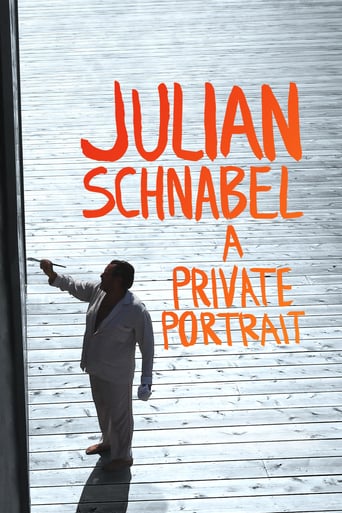David Ferguson
Greetings again from the darkness. Do you believe in destiny? Whether you do or you don't, it's difficult to argue that Julian Schnabel was born to be anything other than an artist. Director Pappi Corsicato's final cut is as much a tribute to an artist he obviously admires as it is a biography of the pajama wearing cultural influencer.Schnabel was raised in far south Texas, but according to his sister, a difficult child birth in Brooklyn set the stage for his being "special". In fact, director Corsicato interviews Schnabel's siblings, 5 of his kids, his 2 ex-wives, art experts and friends, and celebrity admirers like Willem Dafoe, Al Pacino and Bono. These interviews are blended with home movies, personal photographs, and clips of Schnabel working, playing and talking about his work and life.The constant praise for Schnabel is only periodically sprinkled with minor nicks that are apparent should one read between the lines, but this is meant to be documented proof of a career that exploded after a 1979 show at the Mary Boone Gallery. We hear Schnabel described as a "controversial artist" with no boundaries who sees beauty in places most of us don't notice.Even though we get to see quite a few of Schnabel's paintings, a significant portion of the film is devoted to Schnabel's work as filmmaker. Special attention is given to his first film Basquiat (bringing an artist's perspective to the story of the artist), as well as Before Night Falls, and the Oscar nominated The Diving Bell and the Butterfly. Being such a movie fan, I've always admired Schnabel's unusual film work as much as his paintings. It's so difficult to stand out in either field, but he manages to make a statement in both. He draws a few chuckles when he states that he "had a day job" that allowed him to make movies.It's unusual for the subject of a documentary to be listed as Executive Producer on that film, but Schnabel describes himself as having "blind faith" in what he does and his entire professional life has been on his own terms. Director Corsicato uses music quite effectively, though this private portrait never digs too deeply and certainly never comes close to answering what drives an artist – even one who can quote The Godfather.



